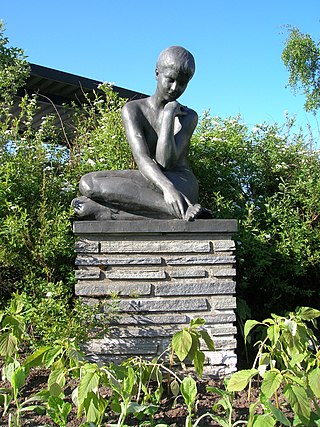See also
- Dashrath Puri, a small colony situated on Dabri-Palam road in South West Delhi, India
Dashrath is a given name. It may refer to:
Joshi is a surname used by the Brahmin (caste) in India and Nepal. Joshi is also sometimes spelled as Jyoshi. The name is derived from the Sanskrit word Jyotishi meaning "astrologer" or a person who practices jyotisha. Jyotisha refers to Hindu astrology and astronomy and is derived from jyotish.
Sharma is a Hindu Brahmin surname. The Sanskrit stem ṣárman- can mean 'joyfulness', 'comfort', 'happiness'. Sarma and Sarmah are alternative English spellings of the name, commonly used by Assamese Brahmins.
Pandey, Pande, or Panday is a surname which has its roots in Sanskrit.
Bhandari or Bhandary is a surname found in various Hindu castes and communities in India and Nepal. Bhandari means treasurer, keeper of a storehouse. In Punjab, Bhandaris belong to the Khatri caste. In Nepal, the surname is used by both Matwali and Tagadhari Chhetris, as well as Bahuns.
Nischal or Nischol is a name of Indian origin. It is also a given name used in India and Nepal.

Kunwar is an Indian title denoting a prince. It is derived from the Sanskrit word Kumar. It was traditionally associated with the feudal Rajputs such as the son of a Rana, Babu and Thakur

Rana is a given name and surname of multiple origins.
Tripathi or Tripathy is a Hindu Brahmin family name in India and Nepal. Trivedi and Tiwari are variants of the name.

Dashrath Manjhi, also known as Mountain Man, was an Indian laborer from Gehlaur village, near Gaya in the eastern state of Bihar. When his wife died in 1959 after being injured from falling from a mountain and due to the same mountain blocking easy access to a nearby hospital in time, he decided to carve a 110-metre-long (360 ft), 9.1-metre-wide (30 ft), and 7.7-metre-deep (25 ft) path through a ridge of hills using only a hammer and a chisel. After 22 years of work, Dashrath shortened travel between the Atri and Wazirganj blocks of Gaya district from 55 km (34 mi) to 15 km (9.3 mi). He travelled to New Delhi to get recognition of his work and was rewarded by then Chief Minister of Bihar, Nitish Kumar. In 2016, Indian Post issued a postage stamp featuring Manjhi.
Manjhi may refer to:

The Nepal Praja Parishad was the first attempt to form an organization to lead the revolution against the Rana dynasty in Nepal. Led by Tanka Prasad Acharya, the group was founded in 1936, and is seen as the first political party in Nepal. The organisation collapsed after their plot to assassinate multiple members of the Rana regime was discovered, and some of its key members were executed.
Chand means Moon in Hindi.
Subedi is one of the surnames of both Brahmin and Chhetri Varna in Nepal. In ancient days, people who could recite Veda easily were called by the surname Subedi. It is also believed that they originated from the same Village called Subeda which lies in the Rolpa, Bajhang District of Far Western Nepal which is why they are called Subedi. They belong to the Bharadwaja Gotra. Subedi are mostly found in the hilly region of Nepal. They are also found in kingdom of Bhutan and Myanmar.
Dhami is a Punjabi & Rajput surname. Notable people with the name include:
Acharya is a surname mainly found in the South Asian countries of India, Bangladesh and Nepal.
Khatri, is a surname.
Parajuli/ee or Parajuly is a surname found among Nepalis, Sikkimese Indians and Indian Gorkhas.
Kharel is a bahun surname found in Nepal and some parts of India
Bhusal or Bhushal is a surname belonging to the Khas people of Bahun caste from Nepal.
Prasain or Prasai is a surname belonging to the Khas people of both the Brahmin and Chhetri caste from Nepal.